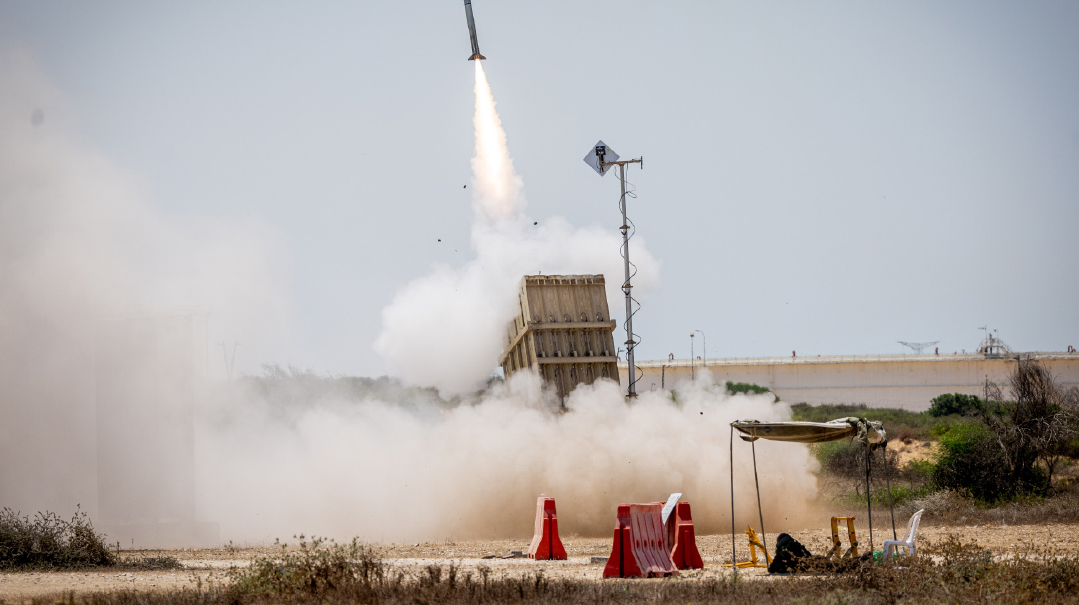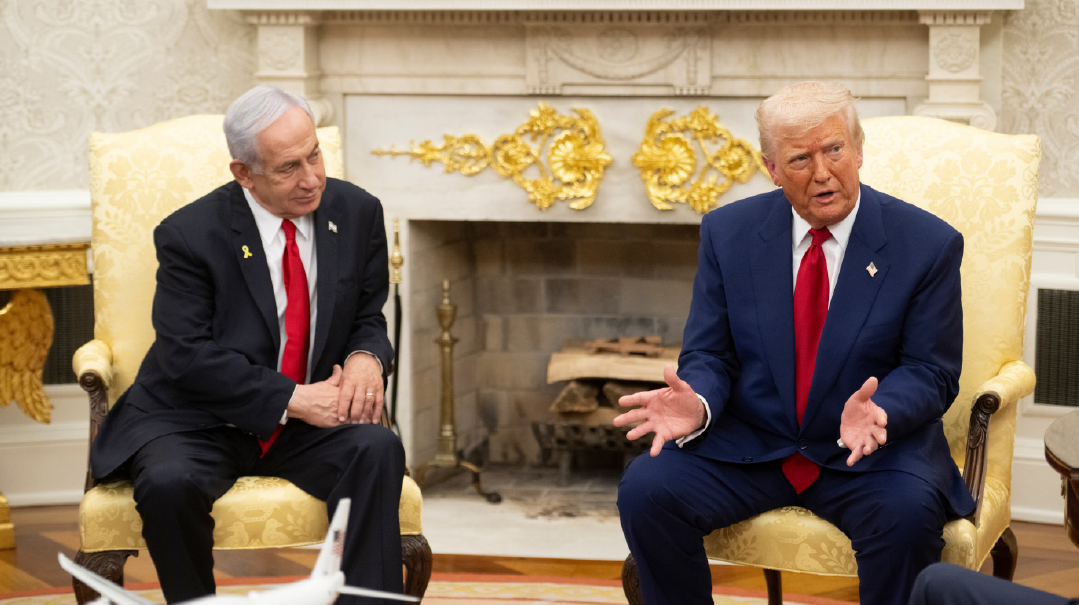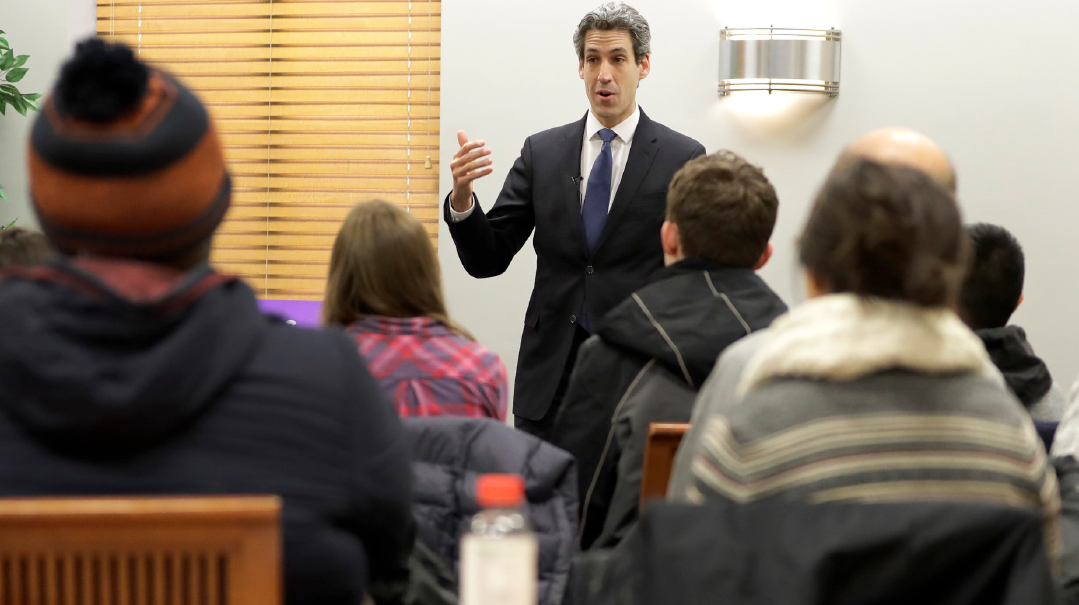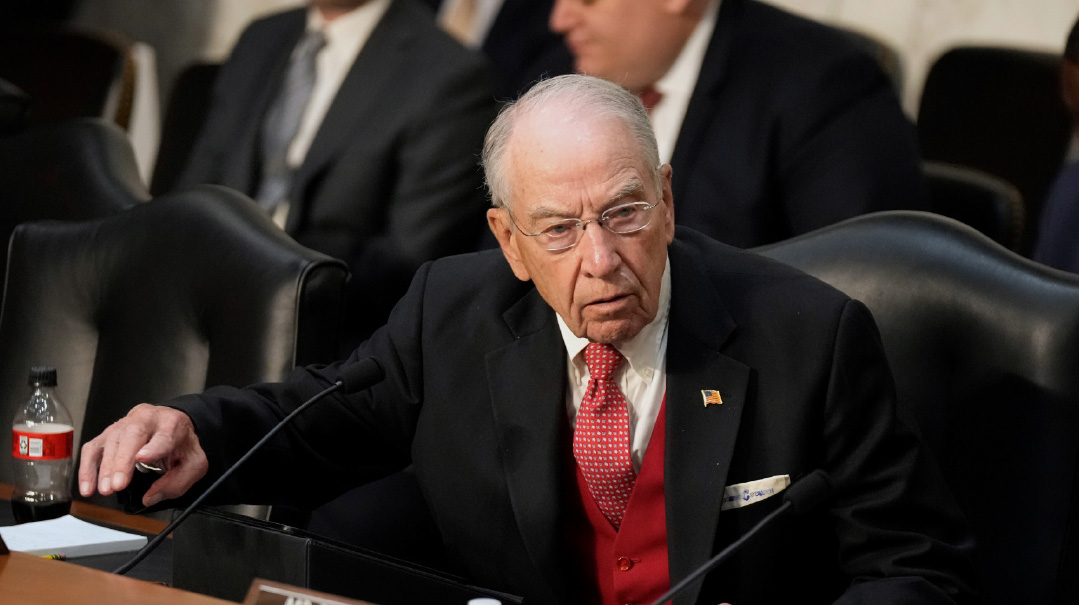Future Warrior

Is Israel ready for a professional army?

A new poll in Israel shows record support both for abolishing the mandatory draft and for transforming the IDF into a professional army. What is the explanation for this shift in public sentiment when Israel is besieged by multiple threats? And with the Knesset facing a January deadline from the Supreme Court to pass a new chareidi draft law, how will this poll impact the debate?
The survey published by the Israel Democracy Institute (IDI) showed that for the first time, more secular Jewish Israelis favor scrapping the compulsory draft than retaining it, making waves for a day or two. Then, like most stories that have an abridged shelf life in today’s relentless news cycle, it disappeared from the front page.
However, the long-term ramifications of this changing trend in public opinion were a subject of vigorous debate at the annual conference of the Center for Security and Democracy in Jerusalem.
When the IDI first posed this question in a 2017 survey, 59% rejected the notion of transitioning from mandatory army service to a professional army, and just 38% said yes. Each year since, those margins have narrowed. Their newest poll, released at the conference, now shows 47% of all Jewish Israelis now support a professional army compared to 42% who favor keeping the draft system intact. Chareidim (80%) were the most supportive group while the national-religious public (32%) were the least supportive.
The survey shows that the longstanding debate over compulsory army service is no longer a battle between the Zionist ideal and the chareidi lifestyle. It has infiltrated mainstream Israeli society and is a trend politicians can ignore only at their own risk.
It certainly points to a change of trend in how Israelis view the IDF, at a critical juncture, with the Knesset poised to begin debate next month on a new draft law that will assign quotas to the chareidi sector and penalties for failure to meet them.
Dr. Gilad Malach, director of the ultra-Orthodox program at the IDI, contends his organization’s poll is unlikely to impact the new legislation but will serve as fodder for future discussion between IDF heads and the defense ministry.
“The army used to enjoy the full support of the people, and if most people don’t support the current model, this is a bad sign,” Dr. Malach said.
He proposes three main reasons to explain the shifting sentiment. One is the perception that Israel’s future battles will not involve the full-frontal combat of the Yom Kippur War or the Six Day War, lessening the need for personnel. In addition, he contends today’s youth are more individualistic and have other ambitions besides lengthy army service. He noted that 57% of respondents ages 18-44 support a transition to a professional army. Finally, he says decades of failure to produce a draft law that applies equally to all sectors has led people to take a dim view of the process.
“Ten or fifteen years ago, more people thought that we would succeed in enlisting the ultra-Orthodox,” Dr. Malach said. “Now people are less optimistic, so they are saying if we cannot promote equality by having them serve, then let’s give everyone an equal opportunity not to serve.”
Dr. Yuval Benziman, a lecturer in the conflict resolution program at Hebrew University, concurs with Dr. Malach, adding that the secular public is frustrated over what’s happening on the ground, nationwide.
While chareidim endure the most of media and political critique over non-enlistment, it is common knowledge that some 50% of all eligible 18-year old Israelis do not enlist. More than 40% of those who do enlist never complete their full term of service.
“I don’t think that the IDF or Israel as a society altogether can afford to say we will allow everyone to choose what they want to do at age 18,” Dr. Benziman said, “but as time goes on, society, the politicians, and the IDF will have to negotiate a solution. Eventually, in two decades, the IDF will be a professional army, but there’s a long road ahead to get there.”
Israel Is Not Alone
If Israel ever embarks on that path, it won’t be alone. Israel’s compulsory draft is out of step with the long-term global trends.
Two years ago, Pew Research Center conducted a survey noting both the handful of nations that have suspended or abolished conscription in recent years and those that reinstated compulsory military service a few years after ending it.
“The places around the world that reintroduced the draft system are not doing it because they are starting a process to enlist everyone, but more because of the wish to include women,” Dr. Benziman contends.
Globally, Pew found that fewer than one-third of the world’s nations have an active conscription program.
For the chareidi sector, a move to a professional, or volunteer army could be a game-changer, removing the stigma of non-enlistment that both the secular and national-religious public have branded them with.
Back in 2012, Rabbi Yisrael Eichler (UTJ) introduced a bill in the Knesset to transform the IDF to a professional army and cancel compulsory service.
“A country needs soldiers who love their country and want to go to war for it, not against it,” Rabbi Eichler told me at the time. “That’s why we need a professional army and not one based on forced conscription.”
That measure never stood a chance of passage, but the new poll could provide the impetus to revive it.
Reached for comment, Rabbi Uri Maklev (UTJ) is certain “the influence of the poll will be felt and might lead to a softening of the demands under the new law.”
“It’s clear that the IDF is no longer the ‘people’s army,’ ” Rabbi Maklev said. “That ideal has vanished from the world. It’s not the quantity, it’s the quality of the personnel that counts. Today, one sensor can do what five conscripted soldiers cannot do.”
About another poll finding showing that nearly 70% of Israelis who identify with the political left gave poor or average marks to the IDF for their budget management, Rabbi Maklev noted that veteran and senior IDF officers have privately admitted these inefficiencies to him. “The army operates with an excess of manpower, and invests a lot of resources to maintain all of its recruits and create work for soldiers even where that work isn’t vital for our defense.”
The Knesset has been dithering over draft reform since 2017 when the Supreme Court nullified a law granting chareidim preferential treatment in IDF draft exemptions and ordered the parliamentary body to craft a new law with enforceable quotas and a clear endgame of advancing equality and sharing the burden of military service.
That’s the main reason the Netanyahu coalition originally broke up, leading to an exasperating series of four hotly contested elections. Israel’s newest government faces a January 2022 deadline to break the draft deadlock. The proposed new draft law calls for both higher enlistment quotas from the chareidi sector and economic sanctions against yeshivos that don’t hit their numbers.
Dr. Shlomo Black, a young chareidi researcher at Tel Aviv’s Institute for National Security Studies, recently wrote not to expect a major change from the new law.
“The enlistment targets are not realistic, and it does not seem that the chareidi community will cooperate with the proposed changes,” Dr. Black contends.
Generation Gap
While the IDI is considered one of Israel’s leading think tanks, not everyone agrees with this poll’s conclusions.
Colonel (reserves) Itsik Ronen has his own numbers. Ronen, a 30-year IDF veteran and former commander of an armored brigade, is an instructor at the IDF Command and Staff College. His dissertation for a PhD in political science delved into the effects of military service on Israeli society.
Col. Ronen has been conducting an ongoing survey on social media of young people for the past seven years. Half of his sample of 5,000 people are freshly discharged IDF soldiers, ages 22-23, and half are high school students on the verge of enlisting. Some 76% of the high-schoolers favor keeping the people’s army (the draft). Among recent discharges, 74% favor the people’s army.
For Ronen, these are the respondents who count.
“The main question is not what a father at the age of 51 thinks about the army,” Ronen said. “The main question has to be what our next generation thinks about the military. Their motivation is central here, and my findings show they think the national army is the right model.”
Ronen also says that since so many Israelis grow up in rather homogeneous neighborhoods, the IDF is often their first opportunity to connect with diverse cultures, which he contends is one of two vital components of national security.
“To win a war, you need a cohesive society and a strong military,” Ronen said. “The cohesiveness of the community is what gives the military its willpower.”
He cites the US experience in Vietnam as an example, where the social contract broke down and forced America to quit the Vietnam war despite its overwhelming military superiority.
Often, secular Israelis contend that chareidim cause harm to the social cohesion they are seeking because they don’t serve in the IDF. Col. Ronen takes exception to that.
“Let’s tell the truth,” he says. “The military ethos is not a part of the chareidi community’s beliefs. This community’s cohesiveness comes from its emunah. Emunah is a very important parameter in the cohesiveness of society. If parts of that community have different values and cannot serve because of their beliefs, then leave them alone. That’s part of a democratic value called pluralism.”
Mass Support
If Col. Ronen supports retaining the “people’s army” for cohesion, then Brigadier General (retired) Amir Avivi feels just as strongly that a professional volunteer army “is a terrible idea that could threaten our national security gravely.”
Avivi is also a 30-year IDF veteran who commanded ground troops in Gaza and served as aide-de-camp to former IDF chief of staff Moshe “Boogie” Yaalon. Avivi is currently head of Habithonistim — a group whose goal is to educate and advocate for Israel’s national security needs.
Avivi contends many Israelis are vastly underestimating Israel’s security dilemmas. The IDF, he says, must be prepared for simultaneous warfare on multiple fronts, including a potential uprising from Israeli Arabs inside the Green Line.
“There are many scenarios under which we will need to mobilize hundreds of thousands of people, not all of them necessarily to engage inside Gaza or Lebanon in war, but just defending towns and major roads,” Avivi said. “IDF logistic commanders are saying they will want to mobilize soldiers to the Lebanese border through Wadi Ara, where all the roads are surrounded by Arab towns. We’re lacking the manpower to defend those roads today.”
While many people surmise the next war will be fought mainly with cyber attacks and through the air force, which seemingly requires fewer but better-trained and sophisticated soldiers, Avivi disagrees, comparing war footing to a marathon.
“In every marathon, you have ten great athletes who can complete the race in two hours,” he says. “Then you have the masses who run it in four hours. It’s the masses that make the marathon a major event. War is about the average citizen creating an impact. Anyone who thinks we can solve all of our military needs with cyber and the air force doesn’t understand how war works, especially with the kind of warfare we are dealing with now.”
(Originally featured in Mishpacha, Issue 888)
Oops! We could not locate your form.






